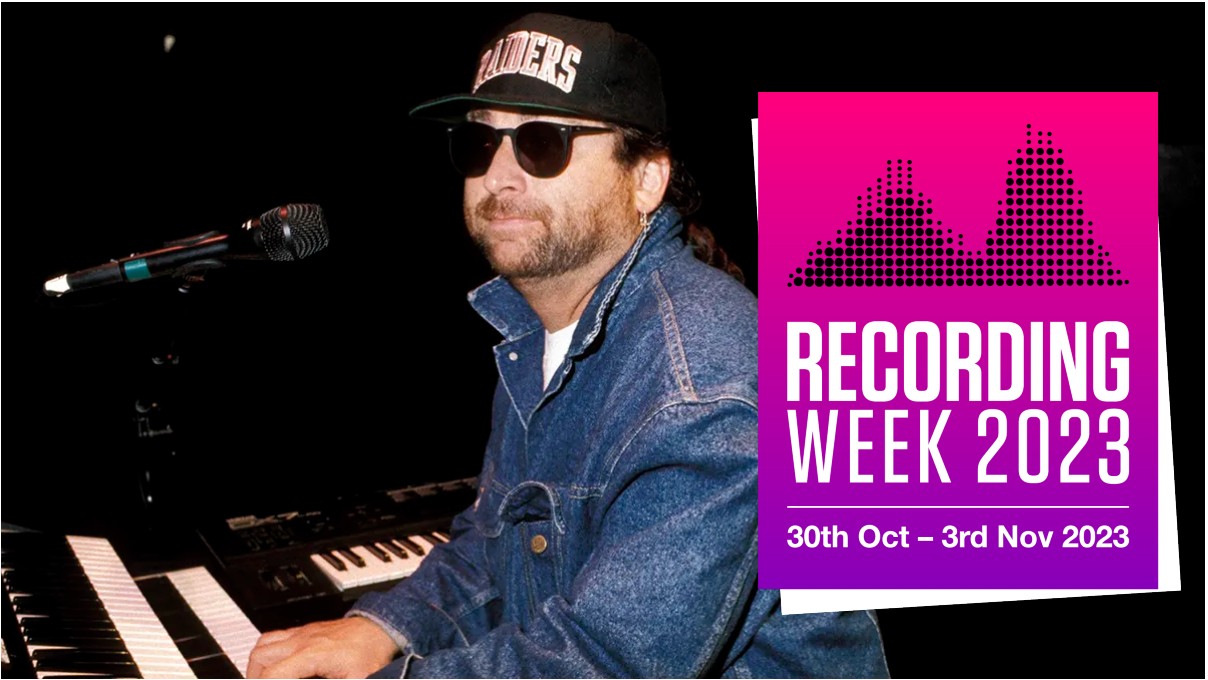Toto’s David Paich on the making of Africa: “We had fun with it like The Beatles did, made a loop, adding instruments one at a time, and then it just took off”
RECORDING WEEK 2023: He also says that “Keith Emerson was our Jimi Hendrix”

RECORDING WEEK 2023: Believe it or not, Toto co-founder and keyboard player David Paich only got around to releasing his first solo album, Forgotten Toys, a year ago. Clearly his many other projects - writing or co-writing some of his band’s biggest hits and playing on Michael Jackson’s Thriller album, for example - have kept him busy.
Paich has also been reflecting on the past, telling Prog magazine that the success of Africa, one of Toto’s most enduring hits, still perplexes him.
“It’s a phenomenon to me; I can’t put my finger on it,” he says. “If it wasn’t a hit I’d say, ‘That’s a nice little album cut.’
“We thought the hits were already on the record," he adds. "Rosanna, I thought Make Believe was going to be a giant hit. Africa came out of nowhere, it was an 11th-hour song, it barely made the album.
“We had fun with it like The Beatles did, made a loop, adding instruments one at a time, and then it just took off. It had some plays in dance clubs in New York, and that’s all it takes. I think it’s just really different to anything else we’ve done. Sometimes it takes being unique to make something popular.”
Speaking to MusicRadar in 2013, Paich revealed that, when he was working on Africa, he felt like some kind of higher power was at work.
"I sat down and started playing and the chorus just came out like magic," he explained. "I remember after I'd sung 'I bless the rains down in Africa', I just stopped and went, 'Wait a minute. I might be a little talented, but I'm not that talented - God's using me for an instrument here!'
Get the MusicRadar Newsletter
Want all the hottest music and gear news, reviews, deals, features and more, direct to your inbox? Sign up here.
"I realised I had a song in the making, so I started writing on the Yamaha CS-80, which you hear in the intro - that's the keyboard playing - and then you hear the little kalimba sounds [on the Yamaha GS1] in the chorus. It was a fertile time to make music with new sounds, and that kind of defined that song."
Expanding on the mehod used to record the song, and its loop-based nature, Paich added that "The first thing that happened was that Jeff Porcaro and [percussionist] Lenny Castro went into the studio and made the loop you hear in the intro, which is all this African percussion, this pulsating loop. Then it was my CS-80 part and guitars and bass, and we brought Joe Porcaro in playing a bass marimba. This is before samples, so we're actually using bass marimbas and all of those different kinds of great organic instruments. It was just so much fun."
“He was our Jimi Hendrix - he was the man!”
In the Prog interview, Paich also reveals that, in Toto’s early days, he was inspired by prog legends Emerson, Lake & Palmer. “Keith [Emerson] had a nine-foot grand, a Moog, and two Hammond organs on stage,” he recalls. “He was our Jimi Hendrix - he was the man!”
Paich goes on to say that it was Emerson who inspired him to start using modular gear so that he could replicate his “big sounds”.
When asked how we would classify ‘progressive pop’, meanwhile - a term that’s been applied to his own music - Paich says that he’s “not even sure what this is,” but says that, of the current crop of successful artists, Kendrick Lemar is one who could be considered progressive.
He reserves his most lavish praise, though, for British multi-instrumentalist Jacob Collier, who he describes as “a one-man Wrecking Crew” and “as talented as Stevie Wonder”.
David Paich’s debut album, Forgotten Toys, is available now. You can read the full interview with him in issue 134 of Prog magazine.

I’m the Deputy Editor of MusicRadar, having worked on the site since its launch in 2007. I previously spent eight years working on our sister magazine, Computer Music. I’ve been playing the piano, gigging in bands and failing to finish tracks at home for more than 30 years, 24 of which I’ve also spent writing about music and the ever-changing technology used to make it.
“I called out to Mutt and said, ‘How about this?’... It was a complete fluke": How Def Leppard created a rock anthem - with a little bit of divine intervention
"It was ugly, like watching a divorce between four people. After a while, I had to get out": Beatles engineer Geoff Emerick on the recording of Abbey Road, track-by-track









